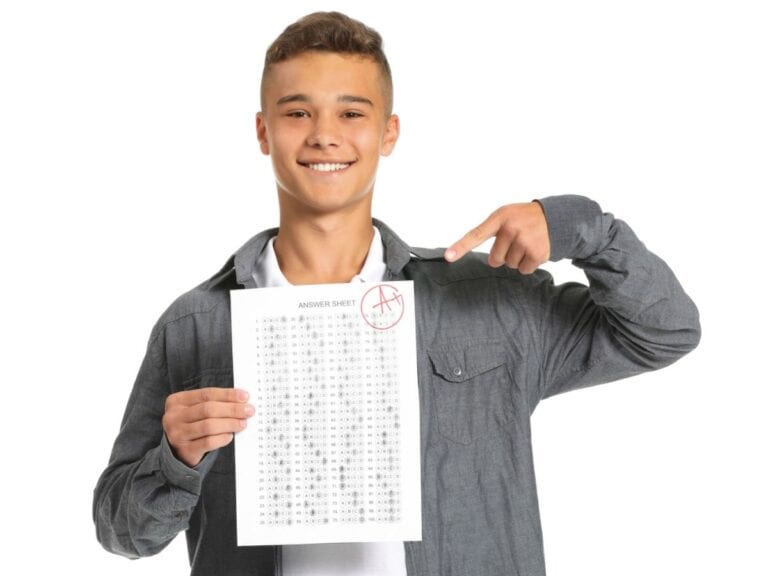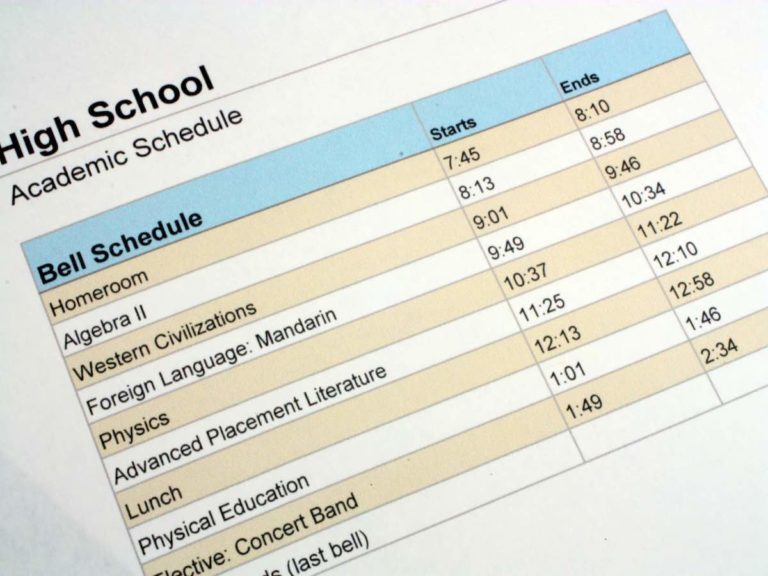How to Choose Electives in High School in 10 Steps
Sitting for elective classes allows teens to have a more balanced high school life and academics, too. It can also help pave the way for the intended college and professional careers of students or assist them in navigating their options.
However, it’s not enough that high schoolers take just about any elective course — they should select them wisely.
In this post, various strategies for choosing the right high school electives to take will be talked about, so kindly devote some of your time to checking this out until the very end if you are about to register for some elective courses.
1. Check Out Available Options
The vast majority of high schools offer elective classes their students can take.
Some high schools have a wide variety of choices, while others may have a handful only. Generally speaking, high schoolers usually have around 5 to 7 electives to choose from per semester, depending on factors such as enrollment and faculty.
Elective courses in high school can fall under several different categories, including business, information technology, writing, foreign language, math, science, social studies, performing arts, physical education and even vocational education. It’s a great idea for high schoolers to obtain a list of their options so that they may choose accordingly.
2. Seek the Advice of an Expert
Choosing the right elective classes to take can be facilitated by consulting individuals on the high school campus who are highly knowledgeable about the matter, and they include a counselor, teacher or mentor.
It’s beneficial for high school students who cannot pick electives that align with their interests as well as goals as far as their intended educational and professional careers are concerned to ask for help.
A high school counselor, particularly, can help teeners select elective courses that could benefit them when it’s time to apply to their top-choice colleges.
Time is of the essence when choosing electives as high schoolers, especially those who are planning on working on a bachelor’s degree someday, have plenty of things to do in preparation for their future.
3. Consider Intended Major or Career Path
College is harder than high school, and life after college poses even more challenges.
What better way for teeners to prepare for their postsecondary and professional lives than to gear up for the future while they are still high school students?
Choosing elective classes that have something to do with the major and career path of their choosing enables them to obtain introductory knowledge and skills to shine in college and also beyond.
It’s also by experimenting with various high school electives that teens who are clueless as to what college major and employment opportunities are best for them — it can help in the discovery of life-changing options.
4. Consider Interests and Passion
Elective courses let teenage students pursue something they find thought-provoking and motivating while at the same time complete the requirements to graduate from high school and improve their college application process.
It can be very rewarding and impactful for teens to sit for classes that excite them.
Taking electives they are interested in or have something to do with their passion in life is a great way for high schoolers to become well-rounded students as well as further explore the things that can influence the choices they will have to make after high school, from declaring a major in college to pursuing a career after college.
5. Try Something New
Especially if a high school student has no idea as to which college major or career path is right for him or her, it’s recommended to consider registering for an elective class whose subject matter seems highly appealing.
What’s so nice about electives is that they can introduce teens to entirely new concepts and ideas, some of which they may not stumble upon in their core classes.
So, in other words, elective classes may be the key to students discovering something that could expand their horizons as well as their initial academic and career plans.
However, it’s still important for high schoolers to make informed decisions to avoid running the risk of wasting precious time and even putting their GPA on the line just in case the elective isn’t what they initially thought it to be.
6. Research Prerequisites
Some electives are not accessible to high schoolers without taking prerequisite classes — classes that need to be successfully completed before students can enroll in additional ones.
For instance, at St. Joseph High School, which is a private Catholic high school in Victoria, Texas, the elective course Advanced Art requires the successful completion of the prerequisite class, Art 1.
Meanwhile, dual-credit electives require students to meet minimum SAT, ACT or Texas Success Initiative (TSI) score requirements.
This is when the importance of consulting the high school counselor, as recommended earlier, comes in so that the high school teen could make smart and sensible choices in terms of registering for elective courses.
7. Take Difficulty Level Into Account
In computing the GPA, grades in both core classes and elective classes are considered.
This means that getting a low grade in an elective course can have an unfavorable impact on a high school teen’s cumulative GPA, which can then have an effect on his or her chances of getting accepted to a college, especially the competitive kind.
Completing a difficult elective class may look impressive in the eyes of college admissions officers alright. However, it’s an entirely different story if you get a low grade on it.
Due to this, it’s important for any high schooler to take into account how challenging his or her core courses are and also determine whether or not he or she will be able to devote enough time to an equally demanding elective.
8. Maintain a Manageable Schedule
Having 4 to 5 classes per semester and participating in extracurricular activities can leave very little to no room for high school students to commit to other things, in terms of academic-related engagements or otherwise.
As a result, taking an elective course may leave a teen’s everyday schedule challenging to manage, which could take its toll on the mental health as well as academic performance and, of course, GPA.
Before deciding to take an elective class, it’s a must for high schoolers to make sure that they would still be able to obtain balance in their day-to-day activities on and off campus.
Someone who has an already tight everyday schedule may consider an elective that requires fewer available resources but is still interesting and meaningful to the teen.
9. Determine High School Requirements and Limit
It’s not uncommon for many high schools to require students to take a minimum number of elective classes to meet graduation requirements — no required electives, no diploma!
How many elective classes high schoolers can take depends on the institutions they are attending.
For instance, while some high schools may impose a limit as to the number of electives students can take, some may not, which means that various academic and personal commitments are the only ones stopping teeners from sitting for as many elective classes as they like.
Keeping one’s schedule manageable, as advised earlier, is a must if high schoolers are allowed to take as many elective classes as possible to avoid compromising their grades in their other classes and, ultimately, their GPA.
10. Investigate What Top-Choice Colleges Recommend
College admissions officers look for a lot of things in applications when trying to make admissions decisions.
In a nutshell, they are on the hunt for well-rounded students who could not only attain academic success but also contribute something positive and worthwhile to the campus community.
Besides college prep courses, colleges and universities, especially competitive ones, would like to see additional challenging courses on an aspirant’s transcript with good grades.
Therefore, it’s vital for high schoolers who are eyeing admission to their first-choice colleges to thoroughly research what is expected from applicants to increase their chances of getting in.
Why Choosing Elective Classes in High School is Important
Electives provide high school teens with the opportunity to explore their interests and passions.
They also enable them to get a head start on their college and professional career by gaining knowledge and skills that can benefit them not only during the college application process and throughout their college careers but also beyond as undergraduate degree holders.
Due to the perks that come with sitting for elective courses, it’s of utmost importance for high schoolers to carefully select which classes they should register for, and using the tips above can help them make informed decisions.
Can freshmen high school students take electives?
If available, first-year high school students can take elective classes.
The number of electives they can take will depend on the policy of the high schools they are attending.
Since they are still transitioning from middle school to high school, freshmen students are encouraged to consult their high school counselor about the matter.
Can you change elective classes in high school?
High school students are allowed to change elective classes, which usually begins with filling out the necessary form. Usually, it’s the high school counselor that students have to approach.
Changing electives should be done in the first few days of the class — students should not wait until the first semester is over.
Read Next: How to Prepare for College
Disclaimer: The views and opinions expressed in this article are those of the authors and do not necessarily represent those of the College Reality Check.






